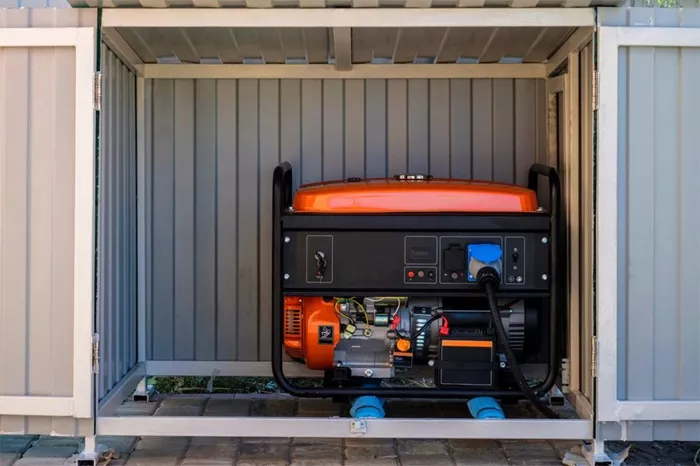Home generators are essential for providing backup power during outages, ensuring your home remains functional and comfortable. One of the most common questions homeowners have is, “How long does a home generator run?” The answer depends on several factors, including the type of generator, fuel source, load capacity, and maintenance. In this detailed guide, we’ll explore everything you need to know about generator runtime and how to maximize it.
Understanding Generator Runtime
Generator runtime refers to the duration a generator can operate continuously on a single tank of fuel or charge. This varies significantly based on the generator’s size, fuel efficiency, and the electrical load it supports. Understanding runtime is crucial for selecting the right generator for your needs and ensuring it performs optimally during power outages.
Types of Home Generators and Their Runtime
Not all generators are created equal. The type of generator you choose will greatly influence how long it can run.
Here’s a breakdown of the most common types:
1. Portable Generators
Portable generators are smaller, mobile units that typically run on gasoline, propane, or diesel. They are ideal for short-term power needs and can run for 6 to 18 hours on a full tank, depending on the load and fuel efficiency.
2. Inverter Generators
Inverter generators are a more advanced type of portable generator. They are highly fuel-efficient and can adjust their engine speed based on the load. This allows them to run for 8 to 20 hours on a single tank of fuel, making them a great choice for camping or powering essential appliances during outages.
3. Standby Generators
Standby generators are permanently installed and automatically kick in during a power outage. They typically run on natural gas or propane and can operate for 24 hours to several days, depending on the fuel supply and load. These are ideal for whole-house power backup.
4. Solar Generators
Solar generators use renewable energy from the sun and store it in batteries. Their runtime depends on the battery capacity and sunlight availability. On a full charge, they can run for 4 to 12 hours, making them suitable for low-power needs and eco-conscious homeowners.
Factors That Affect Generator Runtime
Several factors influence how long a generator can run.
Understanding these can help you optimize performance and extend runtime:
1. Fuel Type and Availability
The type of fuel your generator uses plays a significant role in runtime. Gasoline generators may run out of fuel quickly, while propane and natural gas generators often have longer runtimes due to larger fuel storage options.
2. Generator Size and Capacity
Larger generators with higher wattage capacities can handle more appliances but may consume fuel faster. Smaller generators are more fuel-efficient but may not power your entire home.
3. Electrical Load
The more appliances and devices you connect to the generator, the harder it works, and the faster it consumes fuel. Reducing the load by prioritizing essential appliances can extend runtime.
4. Maintenance and Condition
A well-maintained generator operates more efficiently and lasts longer. Regular oil changes, air filter replacements, and general upkeep are essential for optimal performance.
5. Environmental Conditions
Extreme temperatures, altitude, and humidity can affect a generator’s efficiency and runtime. For example, cold weather can reduce battery performance in solar generators.
How to Calculate Generator Runtime
Calculating your generator’s runtime can help you plan for outages and ensure you have enough fuel.
Here’s a simple formula:
Runtime (hours) = Fuel Tank Capacity (gallons) ÷ Fuel Consumption Rate (gallons per hour)
For example, if your generator has a 5-gallon tank and consumes 0.5 gallons per hour, the runtime would be:
5 ÷ 0.5 = 10 hours
Keep in mind that fuel consumption increases with higher electrical loads.
Tips to Extend Generator Runtime
Maximizing your generator’s runtime ensures you have power when you need it most.
Here are some practical tips:
1. Prioritize Essential Appliances
Only power the most critical appliances, such as refrigerators, lights, and medical equipment. This reduces the load and extends runtime.
2. Use Energy-Efficient Devices
Switch to LED lights and energy-efficient appliances to lower power consumption.
3. Maintain Your Generator
Regular maintenance, such as changing the oil and cleaning air filters, improves efficiency and extends runtime.
4. Store Extra Fuel Safely
Keep additional fuel on hand in approved containers, but ensure it’s stored safely away from living spaces.
5. Invest in a Larger Fuel Tank
For standby generators, consider upgrading to a larger propane or natural gas tank to increase runtime.
Common Mistakes That Reduce Runtime
Avoid these common pitfalls to ensure your generator runs as long as possible:
1. Overloading the Generator
Connecting too many appliances can overwhelm the generator, causing it to consume fuel faster and potentially fail.
2. Ignoring Maintenance
Neglecting regular maintenance can lead to inefficiencies and reduced runtime.
3. Using Low-Quality Fuel
Poor-quality fuel can clog the generator’s engine and reduce performance. Always use the recommended fuel type.
4. Running the Generator Unnecessarily
Turn off the generator when it’s not needed to conserve fuel and extend runtime.
How to Choose the Right Generator for Your Needs
Selecting the right generator depends on your power requirements and how long you need it to run.
Here’s a quick guide:
Portable Generators: Best for short-term use and small power needs.
Inverter Generators: Ideal for sensitive electronics and moderate runtime needs.
Standby Generators: Perfect for whole-house backup and extended outages.
Solar Generators: Great for eco-friendly, low-power applications.
Conclusion
Understanding how long a home generator can run is essential for preparing for power outages and ensuring your home remains functional. By considering factors like fuel type, load capacity, and maintenance, you can maximize runtime and choose the right generator for your needs. Whether you opt for a portable, inverter, standby, or solar generator, proper planning and care will ensure you have reliable power when you need it most.

